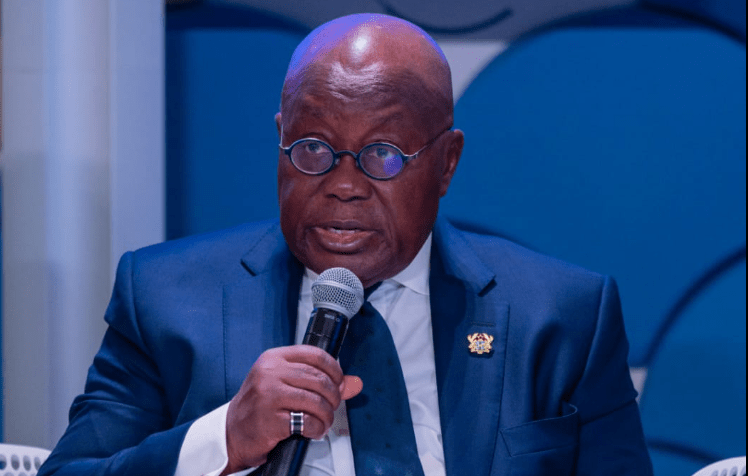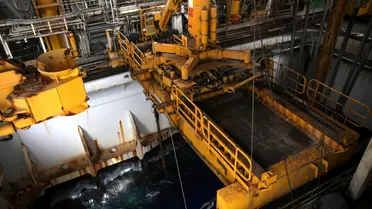JOMORO, Ghana — Ghanaian President Nana Akufo-Addo has initiated construction of a 300,000 barrel-per-day oil refinery, marking the start of a $12 billion petroleum hub project in the southwestern city of Jomoro. The government aims to establish Ghana as a key petroleum center for the West African region.

Ghana, which began oil production in 2010, currently outputs approximately 132,000 barrels per day of crude oil and 325 million standard cubic feet per day of natural gas.
“The project promises to be a cornerstone of our nation’s development,” Akufo-Addo said Monday at the groundbreaking ceremony, broadcast on state-owned Ghana Television (GTV).
The first phase of the project will be funded and constructed by a consortium including Touchstone Capital Group Holdings, UIC Energy Ghana, China Wuhan Engineering Co., and China Construction Third Engineering Bureau Co.
According to the African Refiners and Distributors Association, West Africa consumes about 800,000 barrels per day of petroleum products, with nearly 90% imported. The new hub aims to supply refined products and by-products to the region by 2036, as per an agreement signed in June 2018.
The project, however, faces criticism and opposition. Bright Simons, vice president at the Accra-based think tank IMANI Africa, expressed skepticism about the consortium’s investment readiness and the project’s business plan.

Some residents of the proposed 20,000-acre site have protested, demanding the project’s footprint be reduced to 5,000 acres. Oliver Barker-Vormawor, a senior partner at a law firm representing affected farmer cooperatives, stated that his clients would continue to oppose the current plans.
“The abrasive manner that the government is proceeding discounts valid concerns around the social and environmental impact of the project, the livelihoods at risk by the displacement of farmers and the unsettled questions of ownership and community land rights,” Barker-Vormawor said.
The government has dismissed these concerns, citing petitions from other residents supporting the project.
The petroleum hub, which will include petrochemical plants alongside the refinery, represents a significant expansion of Ghana’s energy infrastructure. As the world’s second-largest cocoa producer, Ghana is seeking to diversify its economy and strengthen its position in the regional energy market.
The project’s progress and its impact on local communities and the regional energy landscape will likely be closely monitored as construction proceeds.


